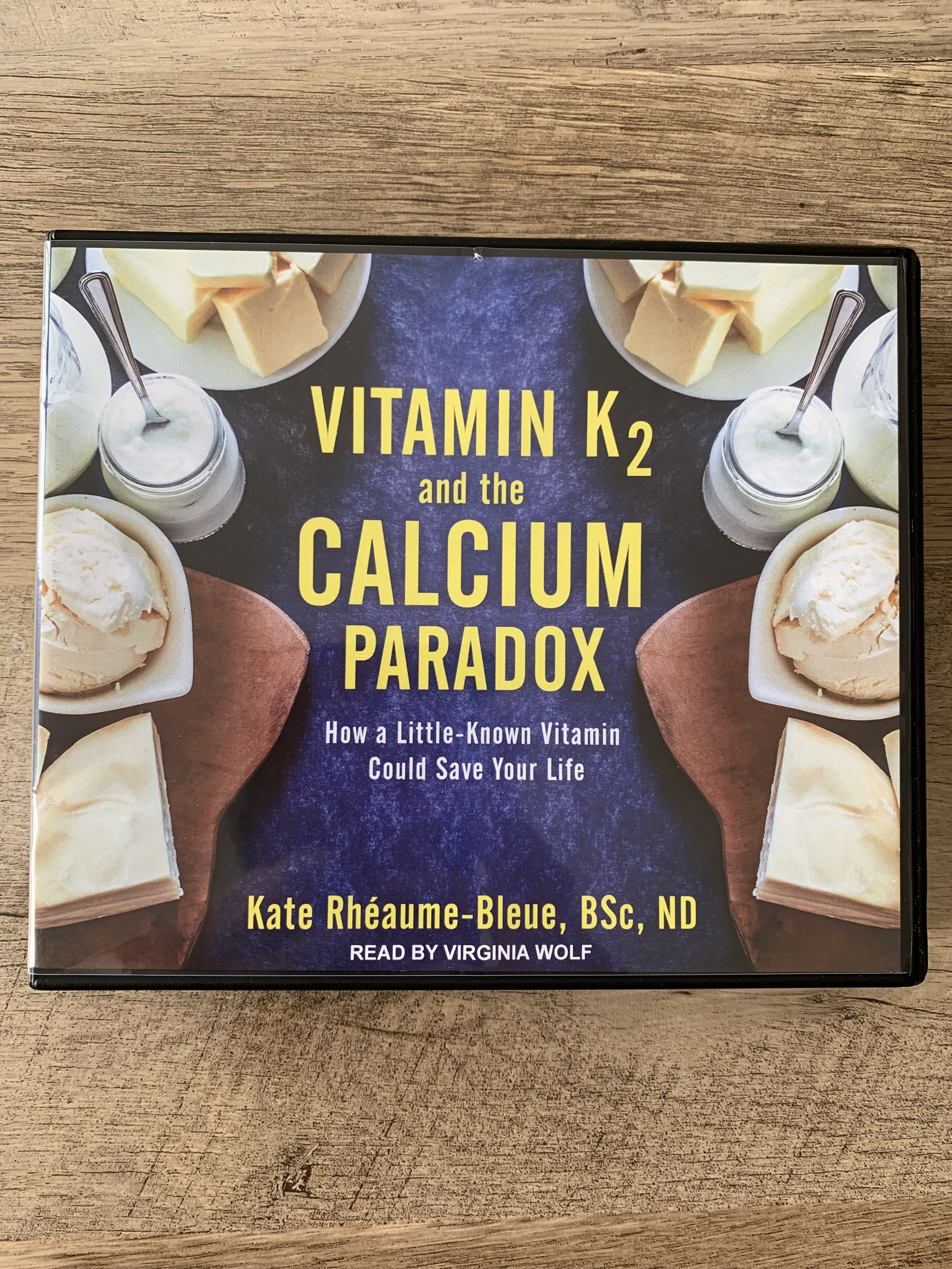
Vitamin K2 and the Calcium Paradox
How a Little-Known Vitamin Could Save Your Life
By Dr. Kate Rhéaume, B.Sc., N. D. (Inactive)
The secret to avoiding calcium-related osteoporosis and atherosclerosis
While millions of people take calcium and Vitamin D supplements thinking they’re helping their bones, the truth is, without the addition of Vitamin K2, such a health regimen could prove dangerous. Without Vitamin K2, the body cannot direct calcium to the bones where it’s needed; instead, the calcium resides in soft tissue (like the arteries)—leading to a combination of osteoporosis and atherosclerosis, or the dreaded “calcium paradox.” This is the first book to reveal how universal a Vitamin K2 deficiency is, and the risk (in the form of cancer and diabetes, among other ailments) the absence of Vitamin K2 poses.
Written by Dr. Kate Rhéaume ND (Inactive), a popular health author on Canadian television and radio, Vitamin K2 and the Calcium Paradox sounds a warning about the popularity of the calcium and Vitamin D craze, while illustrating the enormous health benefits of Vitamin K2 in making the body less susceptible to dental cavities, heart disease, prostate cancer, liver cancer, diabetes, wrinkles, obesity, varicose veins, and other ailments.
A supernutrient, demystified
A fat-soluble vitamin that humans once thrived on, ignored by scientists for almost seventy years.
Grass-fed vs grain-fed matters
Details how the consumption of grass-fed animals led to adequate Vitamin K2 intake—while grain-based animal feed helped eradicate Vitamin K2 from our diets
What doctors are getting wrong…
Describes how doctors are raising recommended doses of calcium and Vitamin D—without prescribing Vitamin K2.

“Are you taking calcium or vitamin D? This book could save your life!”
About Dr. Kate
Dr. Kate Rhéaume is a licensed Doctor of Naturopathic Medicine (Inactive). She obtained her undergraduate degree in Biology from McMaster University, with an honours thesis that involved designing a clinical trial to evaluate a natural medicine treatment.
Kate completed her professional training at the Canadian College of Naturopathic Medicine (class of '02), where she also pursued two additional years of residency training.
As a member of both the Academic and Clinic faculties at CCNM for three years, Kate was a guest lecturer and teaching assistant for several courses. She was the supervising clinician at two different naturopathic public health clinics in Toronto and has held private practices in Toronto and Hamilton.
Since 2006 Kate has been employed as an educator and spokesperson for Natural Factors Nutritional Products, Canada's largest manufacturer of nutritional supplements. She is also bilingual, lecturing in both official languages.
Kate’s best-selling book, Vitamin K2 and the Calcium Paradox: How A Little Known Vitamin Could Save Your Life (HarperCollins) has sold well over 100,000 copies in English and been translated into seven other languages. It is also available in audiobook format.
K2 FAQs
Will K2 cause my blood to clot?
No. This is because, under normal circumstances, the body’s clotting proteins are already occupied by vitamin K1. As such, no amount of vitamin K2 – or K1, for that matter – from food or supplements appreciably affects blood clotting. The one exception to this rule is for people on warfarin (Coumadin). Warfarin works by creating a vitamin K deficiency in the body so vitamin K1 or K2 from any source will counteract the action of the drug and restore the clotting capacity to (or closer to) the normal, un-medicated clotting.
Since K2 reduces plaque, won’t it increase the risk of a clot or heart attack as pieces of the plaque break off?
This is a FAQ since as we understand K2 helps reduce arterial plaque it is easy to imagine it being chipped away or breaking off in chunks. That is not the way K2 shrinks plaque and K2 supplementation has never been associated with a cardiovascular event. In fact, vitamin K2-dependent proteins make plaque more stable and less prone to rupture. Recent clinical trials for reducing plaque in a group known to be at high risk for calcifications used MK-7 in does of around 360 mcg per day with no significant adverse effects (a few participants experienced stomach upset at this dose).
Can I take vitamin K2 with my blood thinner?
It depends on which blood thinner you are taking. Vitamin K (K1 and K2) interacts with warfarin (Coumadin). It will counteract the action of this drug, which will result in an adjustment (raising) of the dose required to achieve a therapeutic INR. While evidence suggests that small, consistent daily doses of vitamin K1 or K2 will prevent INR fluctuations, this can be achieved through diet (like by eating the exact same amount of broccoli or brie cheese everyday). You ultimately can’t get the benefits of vitamin K2 supplements while taking warfarin, so don’t bother.
Vitamin K (K1 or K2) does not interact with other blood thinners such as clopidogrel (Plavix), dabagitran (Pradaxa), prasugrel (Effient), rivaroxaban (Xarelto), aspirin or fish oil. These drugs thin the blood by mechanisms unrelated to vitamin K.
What is a good dose of vitamin K2?
The most recent clinical trials use 180 mcg per day for bone health and 360 mcg daily for arterial calcifications.
What is a good ratio of vitamin K2, vitamin D, and vitamin A?
There isn’t an established ratio of the fat-soluble nutrients. The rule of thumb I go by is equal amounts of A and D with 100 mcg K2 (as MK-7) per 1,000 IU A/D. Doing the math you will notice that beyond 5,000 IU D/A this gets pricey and we don’t know if increasing the dose of D necessitates an ever-increasing dose of K2 or if the demand and benefit caps out at some point. So, since vitamin A has K2-sparing effect, I suspect that it is OK to stick at 500 mcg MK-7 (or 5,000 MK-4) even while increasing the other fat-soluble vitamins.
Vitamin K2 and the Calcium Paradox is available in the following languages:

Japanese Edition

omg even on cd edition

Portuguese Edition

German Edition

Korean Edition

Chinese Edition

Polish Edition

Italian Edition



